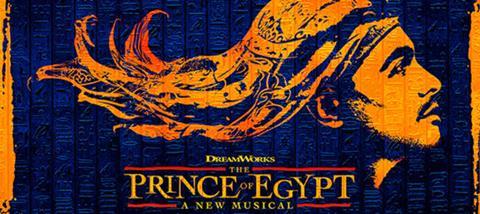
Last week I had the opportunity to see the new musical Prince of Egypt at the opening night in London’s West End. It was an excellent production, with a superb cast and all the well-loved songs from the film, including ‘Through heaven’s eyes’ and 'When you believe’. But my lasting impression was one of frustration at its failure to accurately portray God’s victory and heart to save his people, which is what the story is all about.
A tale of two brothers
Exodus 1-14 tells the story of God hearing the cry of his people enslaved in Egypt and instructs Moses to be his messenger and to tell the Pharaoh to “Let my people go”. It is a story initiated by God as he instructs Moses to go back to the Pharaoh time and time again after each plague.
In the musical, however, the story is all about the relationship between Moses and his brother Ramesses. At first I liked this method of storytelling, it’s effective and made me think about how hard it would have been for Moses to stand against his adoptive brother as a messenger of a foreign god.
But in the musical, this is taken too far, to the point where Rameses is not really against God and ends up trying to save the Israelites from the Egyptian army and the evil high priest. This felt quite forced and a bit strange. I think it distorts the story from one of God’s victory to the reconciliation of Moses and Ramesses, something that is not in the Bible at all.
The goodness of God?
Another theme of the new musical is Moses’ guilt, especially after the death of the firstborn children of Egypt. He doubts he will ever forgive himself and questions whether he is only following God because of the power it confers on him.
This doubting of God’s goodness is not portrayed in the same way in the Prince of Egypt film or the biblical narrative. However, it does reflect the questions that many people perhaps have today about the violence and murder in the Old Testament that God seems to instructs the Israelites to carry out.
These are huge questions that deserve to be acknowledged and worked through, as they reflect the barriers that prevent many people from exploring a faith in Jesus for themselves. Unfortunately, Moses’ questioning was over-emphasised in the musical, with no sense of resolve or conclusion. God is portrayed as powerful, but not good or kind.
God’s victory
If you have seen the film you will know that when the Israelites walk through the Red Sea, they cross into freedom and there is a resounding sense of celebration and victory. They have been miraculously redeemed and the final line is Zipporah saying: “‘Look at your people, Moses, they are free”. I love the film and think that it leaves you with a sense of how incredible God’s victory was. Seeing the line of the rescued people of God fill the screen and snake off into the distance reminds me of the approximately two million people who were saved.
This incredible reminder of God’s care for his people and mighty power to save is comforting and awe-inspiring, but is sadly lacking from the musical, in which the final emphasis is on Moses and Ramesses being reconciled.
Sadly, The Prince of Egypt musical misses the real story. The Exodus isn’t ultimately about Moses or Ramesses. It’s about God’s victory and goodness in bringing his people out of bondage and taking them into a new life of freedom.
Beth Davies is a graduate of Moorlands Bible College living in Bournemouth
Premier Christianity is committed to publishing a variety of opinion pieces from across the UK Church. The views expressed on our blog do not necessarily represent those of the publisher.



























